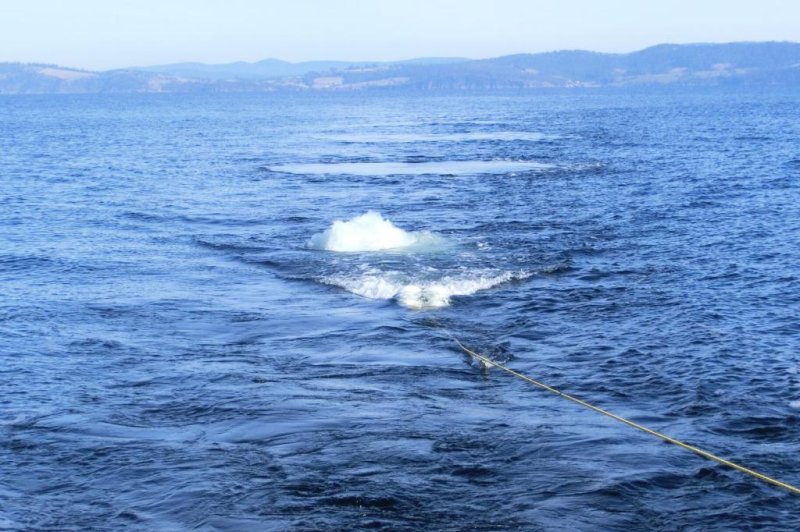An air gun, commonly used in marine seismic surveys, is pulled behind a boat off the coast of Tasmania. Photo by Rob McCauley/CMST/IMAS
June 23 (UPI) -- Seismic surveys carried out by the oil and gas industry are causing high mortality rates among zooplankton, according to new research out of Australia.
Seismic air guns are frequently used on marine petroleum expeditions. New research found the air blasts dramatically increase mortality rates among target zooplankton species. Testing also showed the air gun's negative impact extends well beyond previous range estimates.
Testing revealed air gun pulses yielded between an 18 and 60 percent increase in zooplankton mortality rates. The seismic blasts also killed al zooplankton larva. These effects extended across nearly 4,000 feet. It was previously believed the negative impact of seismic air guns was limited to roughly 30 feet.
The findings -- detailed in a study published Thursday in the journal Nature Ecology and Evolution -- present the possibility that seismic surveys have an array of unstudied impacts on the broader ecosystem.
"Zooplankton underpin the health and productivity of global marine ecosystems and what this research has shown is that commercial seismic surveys could cause significant disruption to their population levels," Robert McCauley, an associate professor at the Center for Marine Science and Technology at Curtin University, said in a news release.
The tests weren't carried out in the lab but executed in Storm Bay, off the southern coast of Tasmania. Scientists used sonar to measure zooplankton abundance before and after the seismic air gun blasts.
Researchers also netted zooplankton before and after the seismic survey to measure the air gun's impact.
"We counted the number of live and dead zooplankton collected in nets using a special staining technique and found that two to three times as many zooplankton were dead following the air gun operations than those collected before," said Jayson Semmens, an associate professor at the University of Tasmania's Institute for Marine and Antarctic Studies.
Researchers hope regulators will take the new findings into consideration during review process for seismic surveys.
"Plankton underpin whole ocean productivity," McCauley said. "Their presence impacts right across the health of the ecosystem so it's important we pay attention to their future."















